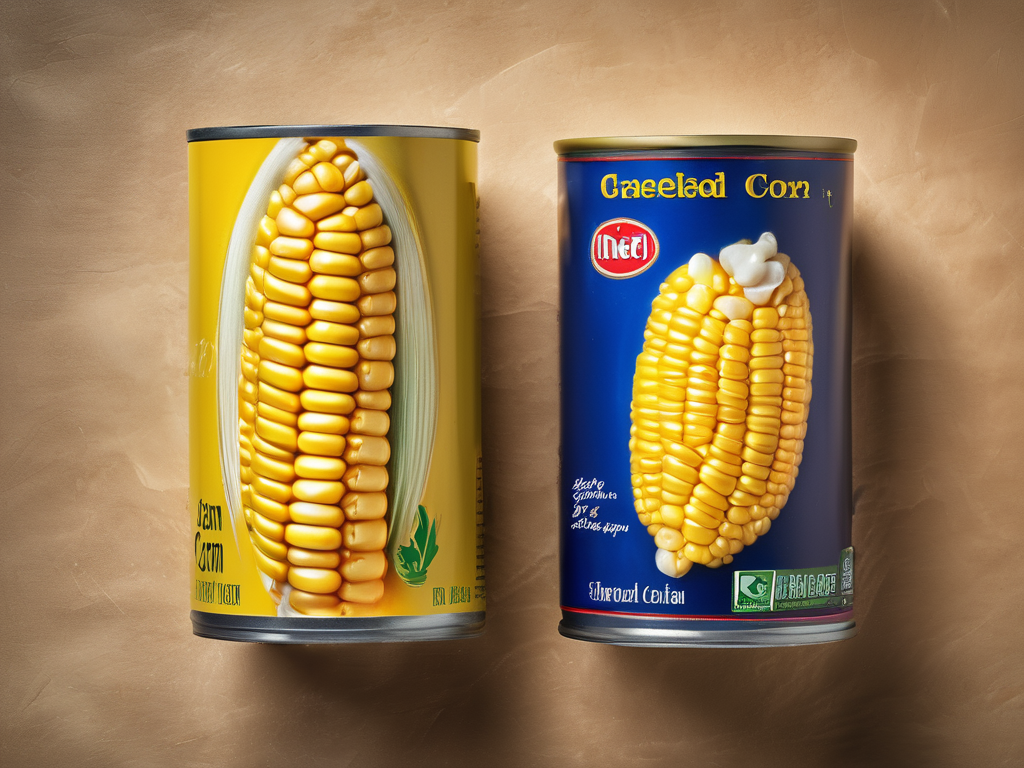
The Truth About Canned Corn Past Expiration Date
The Truth About Canned Corn Past Expiration Date
Are you staring at a can of corn in your pantry, wondering if it's still safe to eat past its expiration date? You're not alone. Many people are unsure about the safety of consuming canned goods after they have expired. In this blog post, we'll dive into the topic of canned corn past the expiration date, debunk some myths, and provide you with practical tips to ensure food safety. (Canned corn)
Understanding Expiration Dates on Canned Corn
Canned corn, like other canned foods, typically comes with a "best by" or expiration date stamped on the packaging. It's important to understand that expiration dates are not set in stone. Here's what you need to know:
What Does the Expiration Date Mean?
- The expiration date on canned corn indicates the manufacturer's recommendation for peak quality and flavor.
- It does not necessarily mean that the corn is unsafe to eat after that date.
- Canned foods are known for their long shelf life due to the preservation process.
Factors Affecting Canned Corn's Shelf Life
Several factors can affect the shelf life of canned corn, including:
- Storage Conditions: Proper storage in a cool, dry place can extend the shelf life of canned corn.
- Dents or Damage: Cans that are dented, rusted, or damaged may compromise the integrity of the seal, leading to spoilage.
- Temperature Fluctuations: Extreme temperatures can cause the quality of canned corn to deteriorate more rapidly.
Is it Safe to Eat Canned Corn After Expiration?
The big question remains: Is it safe to consume canned corn past its expiration date? Here's what you need to consider:
Signs of Spoilage
Before consuming canned corn that has expired, look out for these signs of spoilage:
- Bulging or Swollen Cans: This could indicate bacterial contamination, and the corn should be discarded.
- Off Odors or Colors: If the corn has an unusual smell or color, it's best to err on the side of caution and discard it.
- Visible Mold: Any signs of mold growth on the surface of the corn mean it's no longer safe to eat.
Safety Precautions
If the canned corn shows no signs of spoilage, you can take these precautions before consuming it:
- Inspect the Can: Check for any dents, leaks, or rust on the can before opening it.
- Check the Corn: Look for any unusual smells, colors, or textures once the can is opened.
- Heat Thoroughly: To kill any potential bacteria, heat the canned corn thoroughly before consuming it.
Proper Storage Tips for Canned Corn
To ensure the longevity and quality of your canned corn, follow these storage tips:
- Store in a Cool, Dry Place: Keep canned corn in a cool, dry pantry away from direct sunlight.
- Rotate Stock: Use older cans first to ensure that your supply stays fresh.
- Avoid Extreme Temperatures: Keep canned corn away from heat sources or freezing temperatures.
- Check for Damage: Regularly inspect cans for dents, rust, or leaks that could compromise the contents.
Conclusion
In conclusion, canned corn can still be safe to eat after the expiration date, as long as there are no signs of spoilage. By understanding the factors that affect shelf life, being vigilant for signs of spoilage, and following proper storage practices, you can enjoy your canned corn safely. Remember, when in doubt, it's always best to err on the side of caution and discard any questionable canned goods. [Canned corn](/food/canned corn) can be a convenient pantry staple, but it's essential to prioritize food safety when it comes to consuming expired items. Stay informed, stay safe, and enjoy your meals with peace of mind. (Canned corn)
Related Posts
Here are some other articles you might find helpful:
- Can Corn Expire: Understanding Food Safety and Shelf Life
- The Ultimate Guide to Food Pantry Essentials
- Safe Storage Tips for Opened Corned Beef Hash Commercially Canned
- The Ultimate Guide to Properly Storing Corned Beef Hash Commercially Canned Unopened
- Safest Ways to Store Corned Beef Hash Commercially Canned Unopened for Long-Term Survival